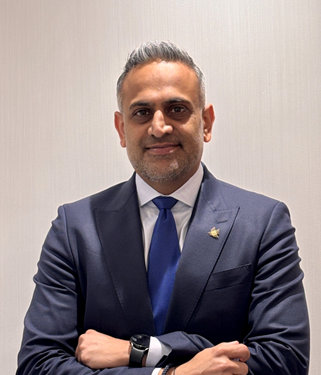In a world grappling with economic uncertainty, geopolitical tensions, and volatile markets, the UAE continues to demonstrate remarkable resilience. While regional and global economies are absorbing the ripple effects of rising protectionism and slowing growth, the UAE is quietly standing out as a beacon of stability and progress.
Despite headwinds, the country’s major stock markets—the Dubai Financial Market (DFM) and Abu Dhabi Securities Exchange (ADX)—have shown relative strength. During the early April market downturn sparked by U.S. tariff announcements, both indices saw modest declines of -2.7% and -2.2% respectively, compared to a -7.1% drop in the S&P 500.
UAE offers structural growth
Looking through the froth, UAE’s economic conditions remain strong, supported by rapid expansion of hydrocarbon production, strong non-hydrocarbon activity, continued reforms and huge coffers to support infrastructure spending.
Hydrocarbon production is set to increase to five million barrels per day by 2027 due to USD 150 billion capex program. Country’s efforts to increase its production quota within OPEC+ further supports the country’s ambitions. UAE’s diversification efforts have paid off with oil-related activities now forming 25% of total GDP (according to Ministry of Economy). This diversification together with their increased production and higher quota within OPEC+ framework should mitigate the impact of year-to-date decline of 15% in oil prices.
On the non-hydrocarbon side, several initiatives are being implemented to provide long term growth including but not limited to:
- Dubai Economic Agenda (D33) aims to double Dubai’s GDP over the next decade.
- UAE Tourism Strategy 2031 targets AED 540 billion in GDP contribution and 40 million hotel guests annually.
- Dubai 2040 Master Plan sets out to grow the emirate’s population from 3.9 million to 5.8 million.
- We the UAE 2031, focuses on doubling the national GDP with an emphasis on non-oil sectors.
- The Fourth Industrial Revolution Strategy and UAE Centennial 2071 envision long-term leadership in innovation, sustainability, and digital transformation.
Together, these initiatives are drawing global attention—and investment. The UAE is increasingly seen as a preferred destination for high-net-worth individuals, global corporations, and investors seeking both growth and stability.
What about tariffs?
As with all countries, UAE has also been on the receiving end of trade tariffs. The US has imposed a tariff of 10% on all exports from the UAE and a 25% tariff on all steel and aluminium imports into the country. However, energy related exports are exempted.
Impact of these tariffs is manageable because the US is not a major export destination for the UAE. According to the U.S. Department of Commerce, UAE exports to the U.S. stood at USD 7.4 billion in 2024—just about 1% of the UAE’s total exports. Even as the fourth-largest aluminium exporter to the U.S., the sector’s impact on overall UAE’s trade is limited. In fact, the acquisition of U.S.-based Spectro Alloys by Emirates Global Aluminium could help buffer any future trade frictions by localising part of its production. Importantly, energy exports—which form a significant portion of UAE trade—are exempt from these tariffs. This, along with the country’s diversified export base, limits downside risks.
How Investors Should Approach the UAE
In this unpredictable global environment, UAE is emerging as a safe-haven market with sound fundamentals. Investors should position towards the following four investment themes which offer low volatility and long-term upside potential:
- Domestic-Oriented Companies: As they should be better insulated from external shocks.
- Policy-Aligned Sectors: Businesses directly tied to the UAE’s long-term national strategies should benefit from regulatory support.
- Defensive Plays: Sectors such as utilities and infrastructure.
- Reliable Dividend Payers: Companies with strong balance sheets and consistent cash flow are preferred in uncertain times.
Remaining Selective will be key
As the global economic environment remains uncertain, with global headlines being dominated by trade wars, the UAE’s commitment to stability, structural reform, and sustainable growth has made it a comparatively reliable market offering real opportunities for those willing to look beyond the noise.











